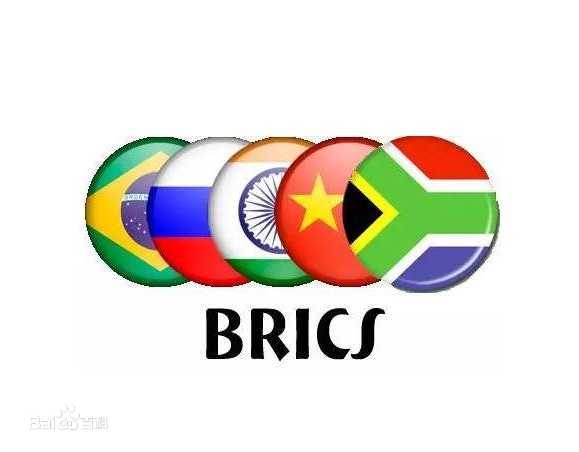BRICS begins to unveil its expansion hopes
- By Sabena Siddiqi
 0 Comment(s)
0 Comment(s) Print
Print E-mail China.org.cn, August 31, 2017
E-mail China.org.cn, August 31, 2017
|
|
|
The 9th BRICS Summit will be held in Xiamen, Fujian Province, on September 3-5, 2017. [Xinhua] |
In the build-up to the 9th BRICS Summit, a preparatory Seminar on Governance was held in Quanzhou to exchange views over the Chinese model of rapid development as an example for achieving fast growth.
Attended by more than 100 representatives, including senior officials, entrepreneurs and researchers from all five BRICS countries, practical governance experiences were shared to work out a flexible framework.
At a recent meeting with BRICS representatives discussing security issues, President Xi shared his vision, saying BRICS cooperation would usher in a second "golden decade" as long as the five members could make joint efforts for closer ties in a spirit of openness, inclusiveness, cooperation and seeking win-win success.
Addressing the delegates, He Yiting, executive vice president of the Party School of the CPC Central Committee, said: "President Xi Jinping is now proposing a grand vision of global governance, stressing stability and the goal of mutual prosperity, with China playing a dramatic new role in seeking global win-win cooperation."
Accounting for a quarter of the world economy and more than half of global growth in the past year, Brazil, Russia, India, China and South Africa are on a winning streak. China and India are producing high growth rates, while gradual recovery is underway in the other three members.
Rapidly achieving its development targets, China has made great progress in smart manufacturing and in the high-tech sector overall, while India is promoting economic growth through urbanization and Russia is seeking to evolve alternate strategies to reduce economic dependence on oil.
Representing South Africa, Essop Pahad described BRICS is very "important, as developing countries need a well-represented global governance system that is not controlled by the West."
Not only that, China and India are now the country’s first and third largest trading partners. Citing findings from a South African study, he said that, since the turn of the century, BRIC-Africa trade has surged from US$28 billion to US$377 billion.
Delegates debated how the development model of governance could be modified to meet the needs of other countries. Acknowledging China’s success working with concepts developed by its leaders, Robert Kuhn, an American expert on China, noted China’s key goals in first achieving a moderately prosperous society, and then promoting reform, rule of law and party discipline in that order.
It was observed that, by displaying a strong spirit for cooperation, the BRICS mechanism was helping members, as well as other developing countries, create a new multilateral system.
Prevalent protectionism in the U.S. and Europe has made it necessary for developing economies to protect themselves through a multilateral trade system, thus the BRICS group may be the new form of global governance required, as it has no fixed ideology or geopolitical stance.
Potentially an effective form of global governance in which emerging markets can play key roles, the BRICS group should accommodate further major developing economies and become a leading platform.
Exploring the modalities to expand the BRICS-Plus initiative, Foreign Minister Wang Yi said earlier this year that China would like to build a wider partnership and hold dialogues to promote the idea.
Enhancing the scope and influence of the forum, rising economies could be included as restricting the membership to the original five countries would deny the consortium its rightful clout.
Holding the forum presidency for 2017, China is hosting the BRICS Summit in Xiamen, where modalities for creating BRICS-Plus may be considered and the impending membership of emerging economies like Egypt, Pakistan, Indonesia, Nigeria and Bangladesh may be discussed.
Supporting the idea of BRICS-Plus, Huang Youyi, a member of the Chinese People's Political Consultative Conference, said: "The actions of the BRICS members have a global impact rather than just being restricted to the five member countries."
Predicting a positive impact, he commented: "With improved cooperation, improved economy and shared solutions for fighting world challenges, BRICS will further expand its influence in the next decade." He added that, "The idea of 'BRICS Plus' does sound attractive."
Likewise, Professor Hu An'gang from Tsinghua University commented: "The rise of developing countries led by the BRICS members is a world trend. They have become the main driving force of the world's economy and will play even bigger roles. They represent the key forces of the developing world. Their inclusion will have positive spin-off effects for others."
However, Swaran Singh, a professor from Jawaharlal Nehru University in New Delhi was cautious regarding a BRICS expansion, saying it might prove to be a distraction and an impediment in achieving consensus.
At the seminar, most experts concluded that the future looks bright for the innovative BRICS group, with Sofiane Sahraoui, general director of Brussels-based International Institute of Administrative Sciences aptly summing it up by saying: "In the next five to ten years, BRICS is going to be a big organization that promotes a new international model."
The author is a geopolitical analyst at think tank Katehon, Pakistan.
Opinion articles reflect the views of their authors, not necessarily those of China.org.cn.







Go to Forum >>0 Comment(s)